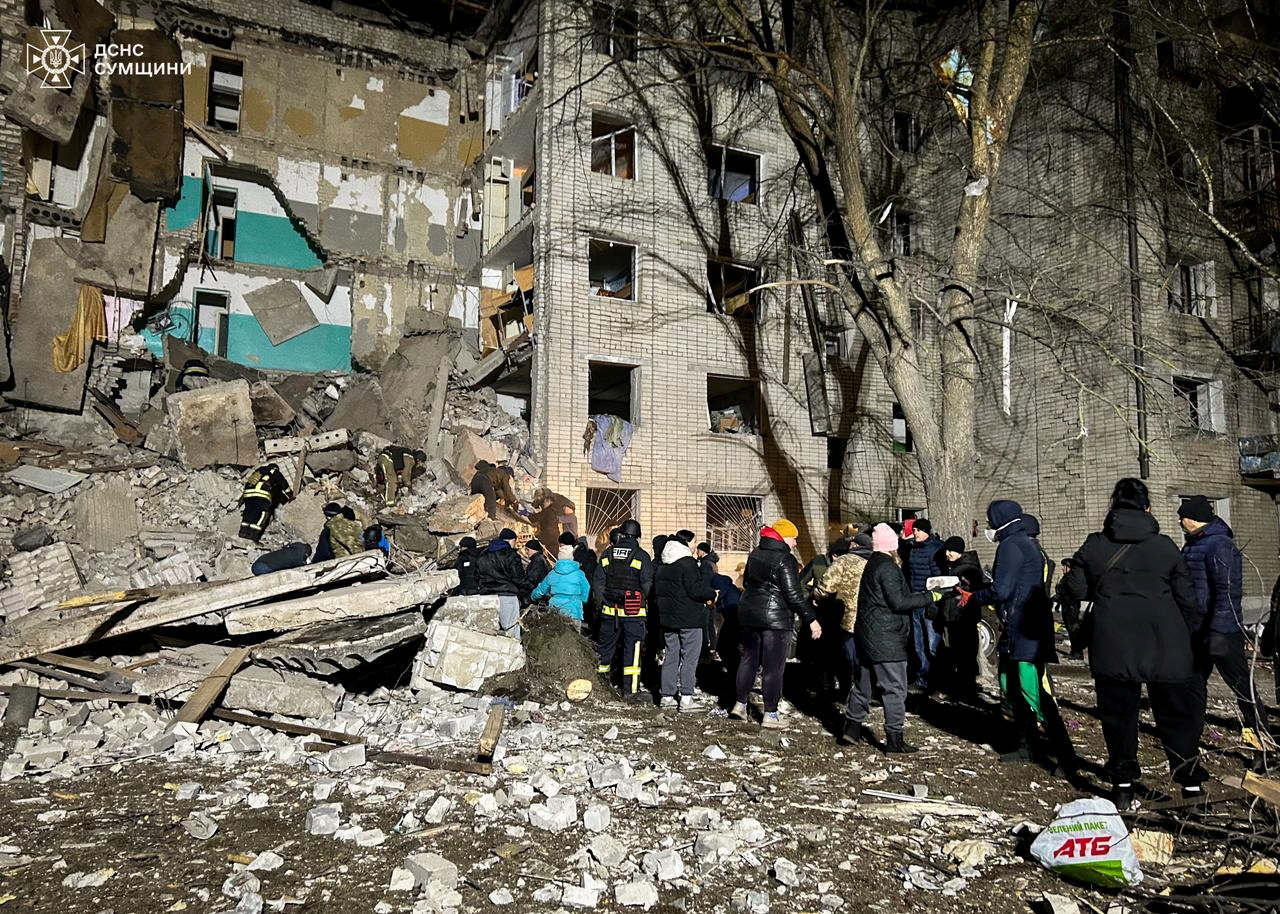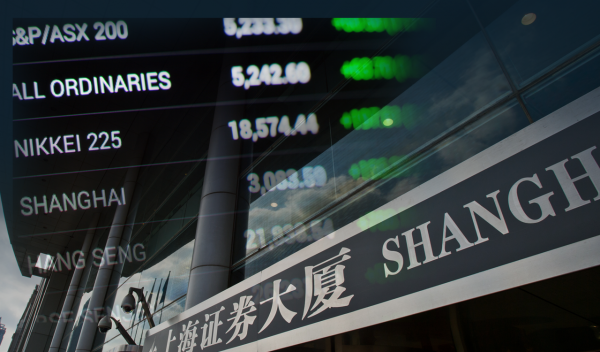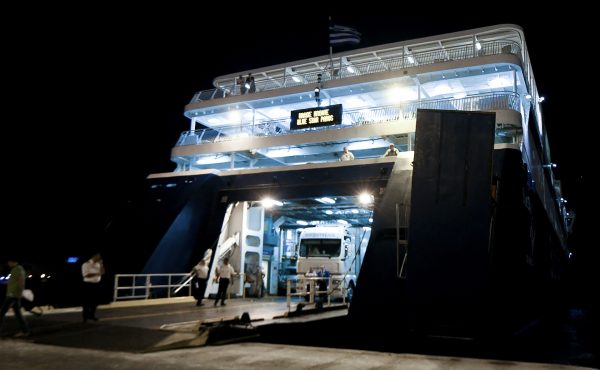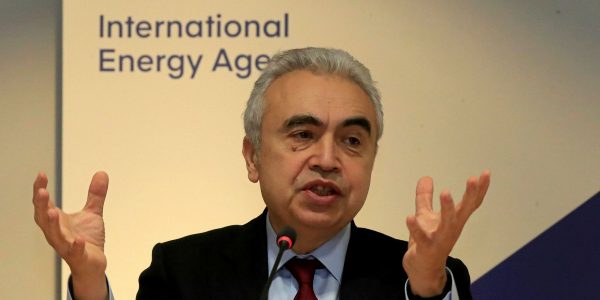
The year 2024 proved to be exceptionally turbulent, with unpredictable, sometimes irrational, and hard-to-explain political developments—an apparent result of the new era, new norms, and unique conditions prevailing on the global stage over the past several years.
The two major war fronts, in Ukraine and the Middle East, remained active and yielded decisive events for the future. Many uncertainties from ongoing geopolitical shifts persisted, posing significant threats to global security and economic stability.
For Greece, a country that is just getting back on its feet after 15 years of crisis, the challenge will be to stay the course of recovery and growth in an increasingly unstable world.
Ukraine’s Stalemate and Rising Threats
By the end of 2024, Ukraine was retreating under Russian aggression and superiority. Its summer counteroffensive on Russian territory in the Kursk region failed to secure the anticipated territorial gains that could have strengthened its negotiation position. Instead, it provoked a more aggressive Russia, which tested new intercontinental weapons and declared its willingness to take unthinkable measures, including a nuclear strike on Kyiv, if threatened.
Western support is no longer unlimited. Both Americans and Europeans hesitate to provide Zelensky with more weapons and funds, straining Ukraine’s leadership and leaving everything hanging by a thread.
Despite the Eastern Europeans’ and Scandinavians’ fears, who view Russian aggression as highly significant and threatening, Ukraine’s leadership is likely to be dragged into an uneven negotiation in 2025, leading to territorial losses.
Middle East: Israel’s Aggression and Regional Power Shifts
In the Middle East, developments were defined by Israel’s intense and persistent offensives. Prime Minister Netanyahu’s superior military machine insisted on the near-total destruction of Gaza and the eradication of Hamas. It also neutralized thousands of Hezbollah fighters in Lebanon and eliminated its leadership, freeing anti-Assad jihadist rebel forces and accelerating Assad’s nearly bloodless overthrow.
By the end of 2024, Damascus was under the control of the 2014 Arab Spring jihadist rebels. Erdogan emerged triumphant, with his Turkish allies treating Syria as a protectorate and seeking to eliminate Kurdish militias. They are also eyeing control of the maritime zone between Cyprus and Syria through an anticipated Exclusive Economic Zone (EEZ) agreement with Syria’s transitional government.
These rapid developments have left Iran’s theocratic regime with little influence in the Middle East. From its “Axis of Resistance,” only the audacious Houthis in Yemen remain active, and they, too, face imminent destruction.
Israel is now moving toward an agreement with Hamas’ remnants in Gaza, securing its northern borders by deploying forces in southern Lebanon and the Golan Heights, and, alongside its American allies, pursuing the prospect of a Kurdish state in the region between Syria, Iraq, and Turkey.
Europe’s Inertia and Challenges
In this volatile geopolitical landscape, Europe remained largely passive, trapped between the possibility of war escalation and the ongoing energy crisis stemming from Russia’s invasion of Ukraine in 2022.
The European economy continued to struggle with the almost utopian green transition, which impacted competitiveness and reduced production capacity, putting immense pressure on societies that once thrived. Europe’s influence on global developments remains limited, if not non-existent.
The November 2024 victory of Donald Trump’s neo-conservatives in the United States further complicated matters. As often noted by The Economist, the newly elected American leadership—with its irrational and anti-systemic ideas—will have a global impact, particularly on Europe.
The “America First” doctrine’s mix of protectionism and assertiveness will test geopolitical conditions and international economic relations.
Europe in 2025 is likely to face defense gaps and competitiveness deficits, requiring enormous resources to address—resources that may need to be sourced through common debt or national budgets, as former ECB President Mario Draghi has suggested. However, current European leadership is weak and challenged by ethno-populist forces supported by Trump and Elon Musk, who increasingly intervenes in European politics.
Greece’s Place in a Shifting World
Amid this unstable geopolitical and economic environment, Greece, while more stable than in the past, remains vulnerable to external influences.
The country’s prospects for 2025 depend heavily on its 2024 performance, though nothing guarantees continuity. As a friend often says, “The world now moves irrationally, as if its foundations have collapsed. Interpretative tools are insufficient, leaving us with uncertain and largely unpredictable times.”
Source: tovima.com
Latest News

Corruption Still Plagues Greece’s Driving Tests
While traffic accidents continue to claim lives on Greek roads daily, irregularities and under-the-table dealings in the training and testing of new drivers remain disturbingly widespread

Pope Francis Died of Stroke and Heart Failure Vatican Confirms
As news of the official cause of death spread, tributes poured in from across the globe. The 1.4 billion-member Catholic Church is united in grief, remembering a pope who championed inclusion, justice, and compassion

Increase in Both Museum Visits, Revenues for 2024
As expected, the Acropolis was the top archeological site in the country, followed by Sounion, Mycenae, the ancient theater of Epidaurus, and Vergina in northern Greece

Where Greece’s Tourists Come From: A Look at 2025’s Top Visitor Markets
The United Kingdom continues to hold the top spot as the largest source of incoming tourism, with 5.6 million seats booked for Greece this summer — up 2.2% from last year. This accounts for 20% of all international air traffic to Greece

Pope Francis: A Pontiff Who Reshaped the Papacy and Sparked a Global Conversation
His first words from the balcony of St. Peter’s Basilica—“Brothers and sisters, good evening”—set the tone for a pontificate that would challenge norms, favor mercy over dogma, and bring the papacy closer to the people.

When Blue Skies was Unmasked as ND’s Political ‘Slush Fund’
The fact that so many top New Democracy (ND) party cadres were paid by the firm Blue Skies, owned by Thomas Varvitsiotis and Yiannis Olympios, without ever citing this publicly, raises very serious moral issues, regardless of the legality

Greek Women’s Water Polo Team Top in the World after 13-9 Win Over Hungary
The Greek team had previously defeated another tournament favorite, the Netherlands, to reach the final.

S&P Raises Greek Rating; BBB with Stable Outlook
S&P’s decision raises the Greek economy to the second notch of investment grade ladder, at BBB with a stable outlook.

Greek Tourism Optimistic About Demand from American Market
A recent survey by MMGY Global, conducted from April 3–5 with a sample of 1,000 U.S. adults, found that 83% of Americans still intend to take leisure trips over the next 12 months, a slight drop from 87% in late February

New Exposé by Domumento Reveals Nefarious Triangular Link of ‘Black Money’ with New Democracy, Blue Skies, & Truth Team
The latest exposé by the Documentonews.gr news site lays bare what appears to be a surreptitious path of indirect financing of ND through the business sector—transactions that, as widely understood, rarely occur without expectations of reciprocal benefit










![Πλημμύρες: Σημειώθηκαν σε επίπεδα ρεκόρ στην Ευρώπη το 2024 [γράφημα]](https://www.ot.gr/wp-content/uploads/2025/04/FLOOD_HUNGRY-90x90.jpg)



![Ξενοδοχεία: Μεγάλο το ενδιαφέρον για επενδύσεις στην Ελλάδα – Η θέση της Αθήνας [γραφήματα]](https://www.ot.gr/wp-content/uploads/2025/03/Athens-hotels-90x90.jpg)


![Airbnb: Πτωτικά κινήθηκε η ζήτηση τον Μάρτιο – Τι δείχνουν τα στοιχεία [γράφημα]](https://www.ot.gr/wp-content/uploads/2024/07/airbnb-gba8e58468_1280-1-90x90.jpg)
























 Αριθμός Πιστοποίησης
Αριθμός Πιστοποίησης